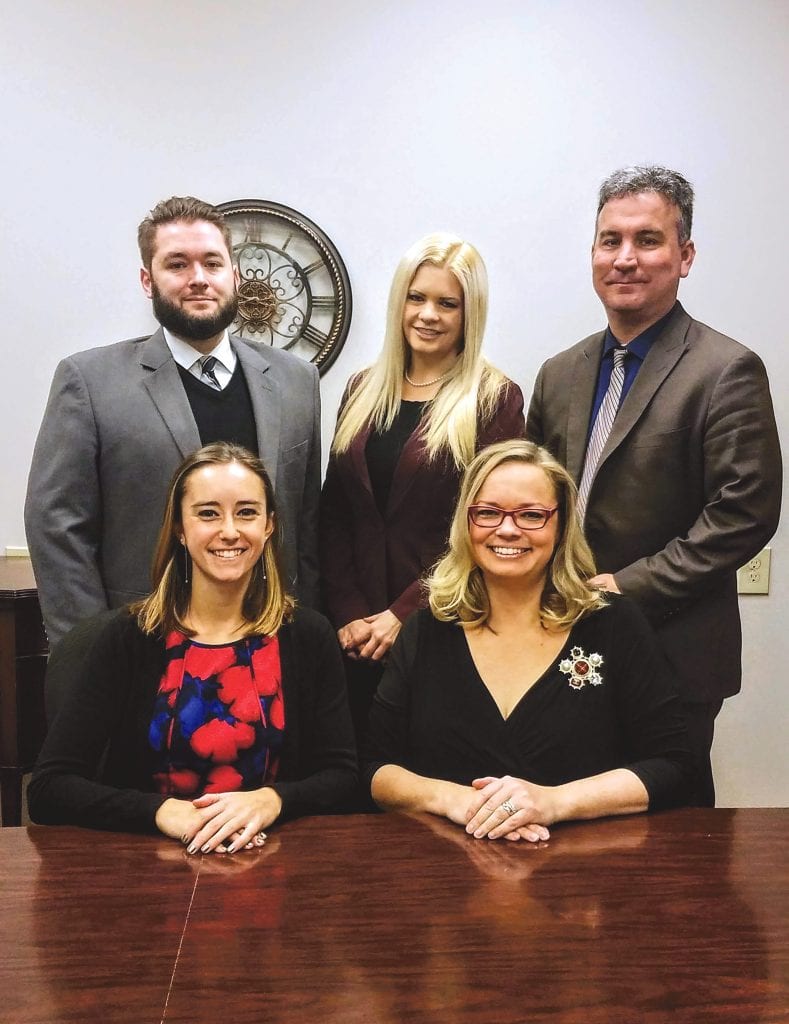Employers, Take Notice
By John S. Gannon, Esq.

John Gannon
A few weeks ago, Starbucks was in all the employment-law headlines, but not for good reasons. Given the publicity, you may have heard about the case of former Starbucks employee Shannon Phillips, who worked in the Philadelphia area. Phillips was a white Starbucks employee who claimed she was fired because of her race. The jury agreed and ordered the coffee giant to pay her $25.6 million in damages.
What you may not have heard about was a more local case in which a Massachusetts employee was awarded more than $24 million by a jury who found she was discriminated against because of her mental health. Here are some details about those two cases, followed by some commentary on what these employers could have done to possibly avoid the massive judgments.
Phillips v. Starbucks Corp.
Shannon Phillips, who is a Caucasian female, began her employment with Starbucks in 2005. She started at the company as a district manager and was promoted in 2011 to regional director of Operations for ‘Area 71,’ which included all stores in Philadelphia and several suburbs near the city. On April 12, 2018, a Starbucks location in Philadelphia made national news when two African-American patrons who were having a business meeting there were arrested for trespassing. The event sparked protests throughout the Philadelphia area.
“Employers cold to the idea of reducing legal risk by paying severance ought to be mindful of cautionary tales about the penny-wise but pound-foolish.”
Starbucks later reached a settlement with the two men and issued a public statement that “Starbucks will continue to take actions that stem from this incident to repair and reaffirm our values and vision for the kind of company that we want to be.” Because she was the regional director of Operations for the Philadelphia area, Phillips was called upon by Starbucks leadership to support and implement their post-incident efforts. According to Starbucks, however, she displayed poor leadership and “failed to perform the essential functions of her role as regional director” after the April 2018 incident. As a result, she was fired.
Phillips sued Starbucks for race discrimination, saying her Caucasian race played a role in the decision to terminate her employment. In her complaint, Phillips said she “worked tirelessly” to help Starbucks repair its image after the event in Philadelphia, but that the chain’s attempts to repair community relations resulted in discrimination against white employees. The jury agreed and awarded her $25.6 million, which was mostly comprised of punitive damages (damages assessed in order to punish a defendant when the behavior is found to be especially harmful or malicious).
Menninger v. PPD Dev., LP
Dr. Lisa Menninger worked as the executive director of a global laboratory-services company. Her job included operational leadership, business development, research and development, and quality-assurance functions for optimal performance within the labs.
In December 2017, Menninger met with her supervisor to discuss her performance. During this meeting, her supervisor suggested that her role would become more visible, involving increased client visits, social interactions, and presentations. This change did not sit well with Menninger. The prospect of making her more visible, with increased client visits and social interactions, caused great distress resulting in “increased anxiety with somatic symptoms.”
About a month after meeting with her supervisor, Menninger disclosed (for the first time) that she suffered from generalized anxiety disorder that includes social anxiety disorder and panic attacks. She then submitted medical documentation noting that changes to her role would increase her anxiety and make it “substantially more difficult, if not impossible” to perform her job.
In response, the business did exactly what it was supposed to do. The company communicated with Menninger’s medical provider and asked the doctor to specifically address how and to what extent Menninger could perform each task. Her doctor responded, saying Menninger could perform most job duties with some accommodations. For example, for internal and external sales presentations, she could develop the slides and other materials, but required someone else to present to the audience. Similarly, for client meetings, she could be responsible for problem solving and idea generation, but she could not attend the meetings herself. The company ultimately determined this arrangement would not work. Menninger subsequently went out on an eight-month leave of absence, which culminated in termination of her employment.
She sued her former employer for disability discrimination, claiming (among other things) that the company broke the law when it refused to provide the reasonable accommodations she requested. The jury sided with Menninger and awarded her a whopping $24 million, consisting of approximately $1.5 million in lost wages, $5.5 million in front pay (an estimate of future lost wages had she remained employed by the company), $5 million for past emotional distress, $2 million for future emotional distress, and $10 million in punitive damages.
Bottom Line
Massive judgments like these can leave employers scratching their heads (or, more likely, pounding their fists). One way to potentially avoid these runaway jury verdicts is to use employment agreements that require employees (and employers) to go to private mediation and arbitration to resolve employment-related disputes, rather than going to trial.
Another option is an agreement between employee and employer that, if any dispute goes to court, the case will be heard by a judge, rather than a jury. These agreements are commonly referred to as jury-trial waivers. They are lawful, but businesses should use experienced labor and employment counsel to help put the agreements in place.
Another way to avoid costly litigation is to work out a mutually agreeable separation agreement with departing employees. Yes, this will involve paying severance to folks who may not be the best performers, but in exchange, you get a release of claims from the employee and an agreement not to sue the company. Employers cold to the idea of reducing legal risk by paying severance ought to be mindful of cautionary tales about the penny-wise but pound-foolish.
Finally, it goes without saying that, any time a business is facing a risky firing, outside counsel should be engaged to discuss the situation and the best way to move forward.
John Gannon is a partner with the Springfield-based law firm Skoler, Abbott & Presser, specializing in employment law and regularly counseling employers on compliance with state and federal laws, including family and medical leave laws, the Americans with Disabilities Act, the Fair Labor Standards Act, and the Occupational Health and Safety Act; (413) 737-4753; [email protected]

























 This past year was one that saw a number of landscape-changing developments in the broad realm of employment law. From paid family leave to cannabis to overtime-threshold changes, there were a number of changes to existing laws, new measures to keep track of, and new challenges for employers.
This past year was one that saw a number of landscape-changing developments in the broad realm of employment law. From paid family leave to cannabis to overtime-threshold changes, there were a number of changes to existing laws, new measures to keep track of, and new challenges for employers.









